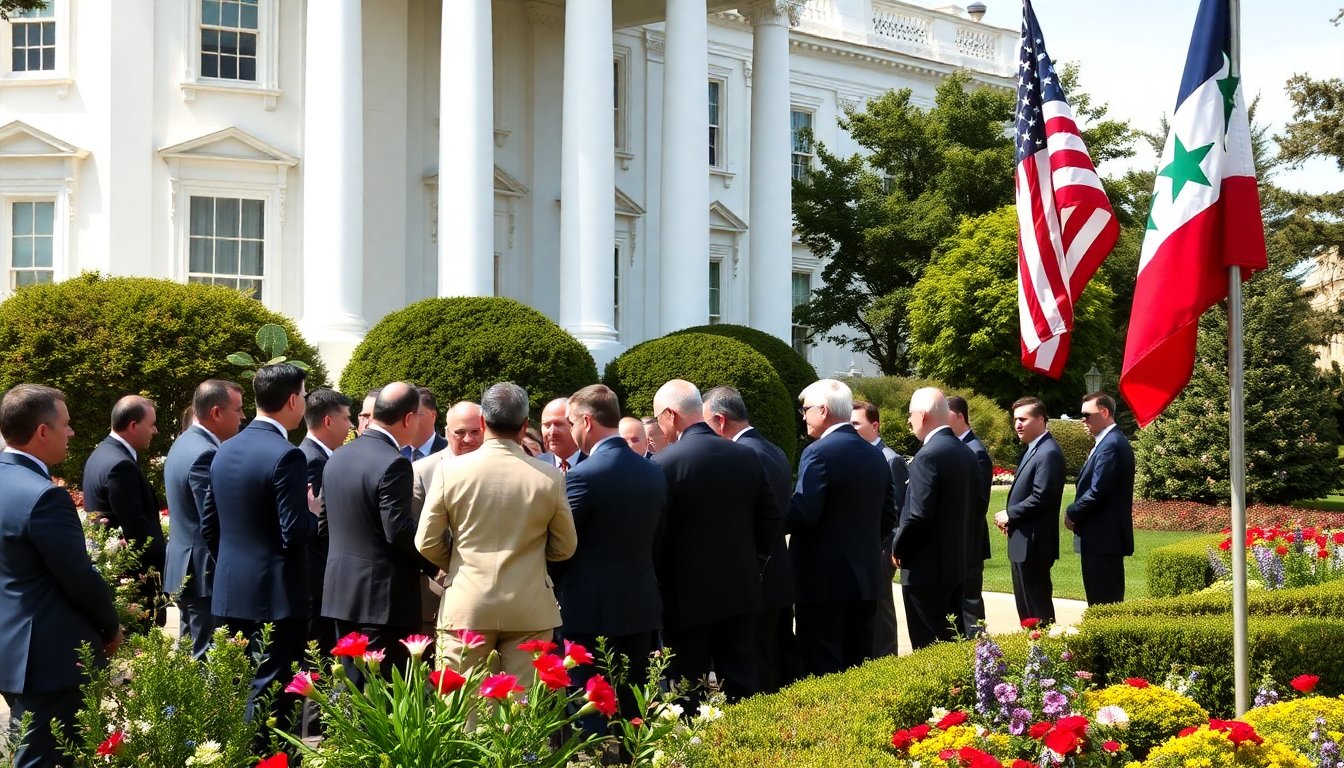Table of Contents
“`html
The recent visit of Syrian President Ahmad al-Sharaa to the United States marks a pivotal moment in both Syrian and American history. Less than a year after his stunning ascent to power, al-Sharaa has made history by becoming the first Syrian head of state to be welcomed in the White House since Syria gained its independence in 1946. This unprecedented event highlights a significant shift in U.S. foreign policy towards Syria and the broader Middle East.
A surprising transformation
At 43 years old, al-Sharaa’s journey from a jihadist fighter to a legitimate leader is nothing short of extraordinary. Previously, he was detained by U.S. forces during the Iraq War for his ties to al-Qaeda militants. However, his recent rise to power after the ousting of Bashar al-Assad has transformed him into a figure of interest for American policymakers. His meeting with President Donald Trump symbolizes a new chapter in U.S.-Syria relations.
Rebuilding Syria’s global standing
Since taking office, al-Sharaa has embarked on an ambitious diplomatic campaign aimed at restoring Syria’s international presence. Following his military success, which ended over fifty years of Alawite rule, he has completed more than twenty foreign visits in an effort to reconnect with the global community. His diplomatic efforts are crucial for rebuilding Syria’s economy, which has suffered under years of sanctions and civil unrest.
Strategic discussions at the White House
Al-Sharaa’s visit to Washington is anticipated to focus on a variety of pressing issues, including the ongoing Caesar Act sanctions imposed on Syria, which can only be lifted by Congress. His discussions with Trump are expected to address regional security concerns, such as the Israeli airstrikes in Syria and the future of the ISIS threat.
Moreover, al-Sharaa is poised to formally join the international coalition against ISIS, a significant shift for a leader who once fought alongside extremist groups. This formal entry into the coalition would have been inconceivable just a few years ago, illustrating his complex evolution from a former insurgent to a key player in global security.
Balancing international relationships
While striving to reconnect with the West, al-Sharaa is also cautiously nurturing ties with Moscow, which has historically supported the Assad regime. His recent discussions with Vladimir Putin in Moscow reflect a desire to establish a relationship based on mutual respect. Additionally, he has been strengthening relations with regional powers like Saudi Arabia and Turkiye, which are eager to counter Iranian influence in the region.
The complexities of U.S. support
Despite the optimism surrounding al-Sharaa’s rise, challenges remain within the U.S. Congress regarding the lifting of sanctions. Some lawmakers are pushing for guarantees related to religious freedom and minority rights in Syria before any measures can be relaxed. The balance of power in Syria is precarious, with Iranian-backed militias and ongoing sectarian tensions complicating the landscape.
Furthermore, while al-Sharaa presents himself as a pragmatic reformer advocating for economic liberalization and political inclusion, skeptics point to ongoing human rights violations and the reality of sectarian violence. Recent clashes involving Syria’s Alawite and Druze communities underline the persistent fragility of the situation.
Implications of the meeting
As al-Sharaa and Trump meet in the Oval Office, analysts suggest that this encounter signifies a broader shift in U.S. foreign policy, embracing a form of realism in the Middle East. “This is a significant win for al-Sharaa, granting him the international legitimacy he has sought,” notes Syrian analyst Malik al-Abdeh. For Washington, this meeting could restore its influence in Damascus after years of withdrawal.
Ultimately, while both leaders may perceive this meeting as a success, the long-term implications of this new relationship remain uncertain. As the region continues to evolve, the dynamics between Syria, the U.S., and their allies will play a critical role in shaping the future of Middle Eastern politics.
“`


